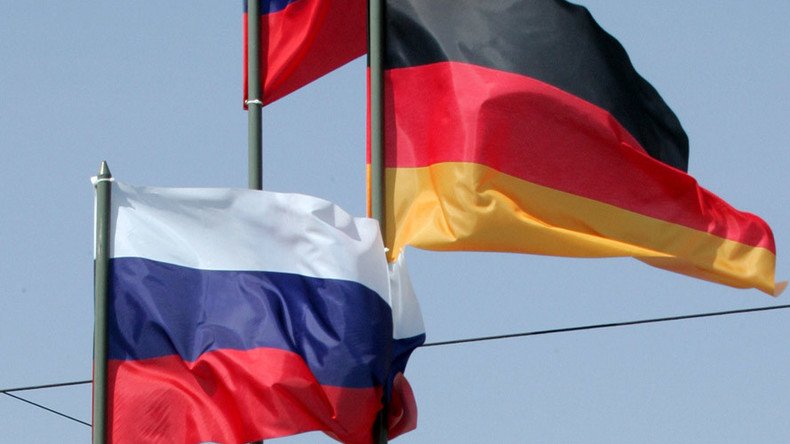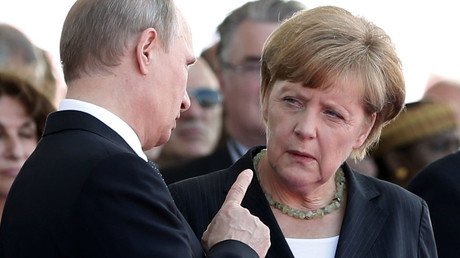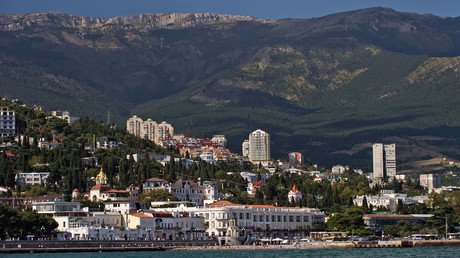‘Sanctions brought nothing’: German politicians call for rapprochement with Russia

The current policy of “saber rattling” should not continue, Erwin Sellering, the prime minister of the German state of Mecklenburg-Western Pomerania, told Germany’s weekly Welt am Sonntag newspaper, as he called for lifting anti-Russian sanctions.
“The tit-for-tat sanctions have brought nothing. They should be lifted as soon as possible,” Sellering, who represents the Social Democrats, told Welt am Sonntag, adding that Russia and Western countries should “move closer” again.
His words were partly echoed by Thorsten Schaefer-Guembel, vice chairman of the German Social Democratic Party (SPD), which now forms the ruling coalition with German Chancellor Angela Merkel’s Christian Democratic Union (CDU).
“The SPD should now breathe new life into the policy of détente right now, in the times of crisis,” he said, stressing that Germany should “hold all negotiation channels open” and rely on diplomacy and bringing “change through rapprochement,” particularly in its relations with Russia.
He called Russia “an important actor, without which the resolution of many global issues, including [bringing] peace to Syria, is impossible,” although he also stressed that Russia is a “difficult” partner.
Such comments from SPD politicians worry their coalition partners. Peter Tauber, CDU’s secretary general, told Welt am Sonntag that he is concerned by “growing anti-US sentiment” in German society, accusing Germans of having a “double morality,” meaning they tolerate Russia’s actions in Syria and Ukraine, but would allegedly never tolerate anything of the kind done by the US, in his view.
READ MORE: Sanctions are evidence of the intellectual bankruptcy of Merkel’s Russia policy
Roderich Kiesewetter, another CDU politician, has directly attacked the Social Democrats. “I see with concern that more and more SPD [politicians] take a stand in favor of [Germany] taking equal distance from Washington and Moscow,” he said, adding that “Russia aims at split off Western countries and especially Europe.”
The rhetoric from both sides comes as German politicians are debating the imposition of additional sanctions on Russia over its actions in Syria. Green Party politician Katrin Goering-Eckardt has recently demanded that the German government “immediately launch a process of imposing new sanctions against Russia for its barbaric actions in Syria,” accusing Russia of using bunker busters and barrel bombs and committing “war crimes,” as reported by Der Spiegel.
Earlier, the head of the Foreign Policy Committee of the lower house of the German parliament, Norbert Roettgen, and a German EU politician, Elmar Brok, also called for more sanctions against Russia.
On October 6, the Wall Street Journal reported that Chancellor Angela Merkel’s government is looking for ways to push Moscow into changing its course in Syria, including the possible imposition of new European Union economic sanctions.
The chancellor’s spokesman, Steffen Seibert, has neither confirmed nor denied media reports speculating on this issue, but said that the German government is considering “all possible options.”
In response, Russian Foreign Minister Sergey Lavrov expressed hope that “firstly, common sense will prevail and, secondly, the desire to blame Russia everywhere and for everything will go away.”














